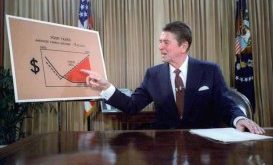For a ‘churchyard romantic’ like yours truly, a visit to Alter Friedhof Prenzlauer Allee is, of course, a must when in Berlin …
Read More »Berlin
Touring again. Guest appearance in Berlin. When there, yours truly always visits Walter-Benjamin-Platz (close to Kurfürstendamm, between Leibnizstraße and Wielandstraße). Interesting architecture and a couple of excellent restaurants and cafés. Regular blogging to be resumed next week.
Read More »Mainstream economics — a methodological strait-jacket
Mainstream economics — a methodological strait-jacket Jamie Morgan: To a member of the public it must seem weird that it is possible to state, as you do, such fundamental criticism of an entire field of study. The perplexing issue from a third party point of view is how do we reconcile good intention (or at least legitimate sense of self as a scholar), and power and influence in the world with error, failure and falsity in some primary sense; given that the...
Read More »Instrumental Variables — The Good and the Bad
Instrumental Variables — The Good and the Bad .[embedded content] Making appropriate extrapolations from (ideal, natural or quasi) experiments to different settings, populations or target systems, is not easy. “It works there” is no evidence for “it will work here.” The causal background assumptions made have to be justified, and without licenses to export, the value of ‘rigorous’ and ‘precise’ methods used when analyzing ‘natural experiments’ is often...
Read More »MMT the Movie
Finding the Money follows economist Stephanie Kelton on an exploration of Modern Monetary Theory. Also appearing in the movie are Pavlina R. Tcherneva, L. Randall Wray, Mathew Forstater and Fadhel Kaboub. Soon coming to a theatre near you!
Read More »Woke cancel culture — a threat to our universities
Woke cancel culture — a threat to our universities Philosophy professor Kathleen Stock has been actively engaged in ongoing discussions about gender identity and transgender issues for a long time. In these discussions, she has expressed scepticism and concern about certain aspects of transgender ideology, particularly in relation to gender identity and its implications for women’s rights and spaces. Stock has argued that the concept of gender identity...
Read More »‘New Keynesian’ macroeconomics — worse than useless
‘New Keynesian’ macroeconomics — worse than useless I have tried to document how the practitioners of the self-proclaimed ‘science of monetary policy’ have gone out of their way to salvage their paradigm—after the inflationary surge of 2021-2023 made it clear that the New Keynesian emperor was not wearing any clothes. All their elaborate tools and instruments, including the output gap, the unemployment gap, the New Keynesian Phillips curve and...
Read More »Felet med modern nationalekonomi
Felet med modern nationalekonomi Det som är fel med mainstream nationalekonomi är inte att den använder modeller i sig, utan att den använder dåliga modeller. De är dåliga eftersom de inte bygger broar till de verkliga system där vi lever. Förhoppningsvis kommer det ensidiga, nästan religiösa, insisterandet på matematisk deduktiv modellering som den enda vetenskapliga aktiviteten värd att förfölja inom nationalekonomin att snart ge vika för metodologisk...
Read More »Economics and ideology
Mainstream (neoclassical) economics has always put a strong emphasis on the positivist conception of the discipline, characterizing economists and their views as objective, unbiased, and non-ideological … Acknowledging that ideology resides quite comfortably in our economics departments would have huge intellectual implications, both theoretical and practical. In spite (or because?) of that, the matter has never been directly subjected to empirical scrutiny. In a recent study,...
Read More »Out of time
.[embedded content]
Read More » Lars P. Syll
Lars P. Syll







